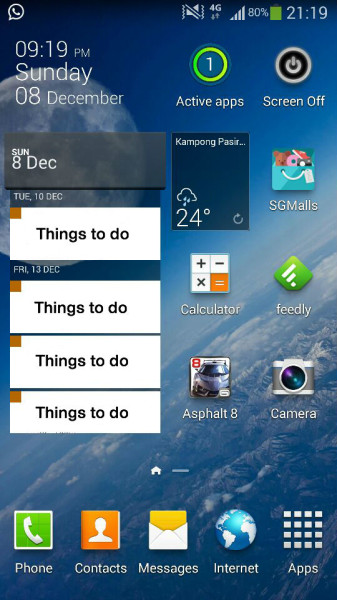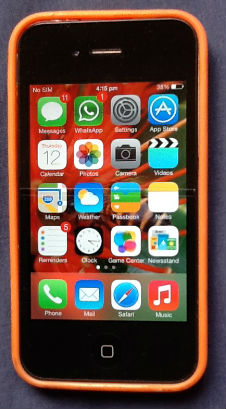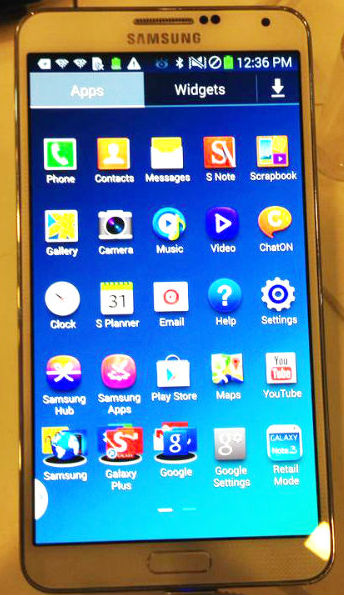He has been a loyal iPhone fan ever since 2009. But earlier this year, he decided to buy an Android phone – the Samsung Galaxy Note 3 – which he now thinks is far superior.
What made IT engineer Justin Lee, 26, switch from iPhone to Android?
Read on, to find out in an interview I had with this formerly devoted iPhone user who switched from iPhone to Android.
Justin, you’ve been an Apple iPhone fan since 2009 but you have now switched to an Android phone. What was the main pulling factor that made you switch from Apple to Android?
I was totally blown away when I first saw the iPhone 3G. The idea of SMS appearing as a thread, like Instant Messaging, was very interesting.
Soon, iPhone 4 came out and I was once again excited to change my phone because the screen looked so crisp and clear, compared to my old model and all other Android phones of that time.
But by 2013, iOS 6 started to look rather dated, as the Android phone had improved over the years and the idea of sticking to the same user interface (UI) for another two years, didn’t appeal to me.
Also, my 3.5” iPhone 4S looked like a toy phone beside the Android five-inchers. I envied people reading Yahoo News without much scrolling needed. The web browsing experience is definitely better on the Android phones now.
About two months before my two year mobile contractual period was bound for renewal, I downloaded iOS 7 Gold Master to my aging iPhone 4S. Once again, I was blown away. The phone looked entirely refreshed with the flattened design, the new typefaces, colour schemes and the UI animations/transitions.
But very soon, after using iOS 7 for two months, I decided to go for the bigger screen over UI. I decided that the best looking UI was not good enough to hold me back from having a phone with a good web browsing experience. I love to open multiple tabs – and 512MB of ram by modern standards was simply not good enough. My web browser plus the newer apps crashed to home screen all the time, which I found rather annoying. Moreover, the Samsung Galaxy Note 3 has finally overtaken iPhone in terms of screen pixel density and the screen clarity is now on par. I remembered not regretting buying the iPhone 4S because the screen of the Samsung Galaxy S2 looked so pixelated in comparison and I couldn’t care if it has twice the RAM! But now the Samsung model is so much better.
What phone are you using now and what was the reason behind your selection of this particular model?
I now have the Samsung Galaxy Note 3.
The 5.7” screen looked like the right size by modern standards. I wanted a phone, which has a substantially bigger screen than iPhone 4S to justify my switch.
The Note 3 also has 4K Video Recording (as compared to iPhone 5S’ which has 1080p HD video recording).
As well, there is 3 GB RAM (People might say iOS is optimized to use less RAM and battery efficient, but my apps and browser apps has always crashed to home screen under load).
What are some of the benefits of Android, compared to Apple?
There is no dead Home button issue.
Also, powerful functions in Android apps not found in iOS counterparts i.e. e-bay app on Android, allow the users to sell items. This function is not supported on the iOS.
The Note 3 can also use apps that make use of OS level data. Call Meter NG allows the user to view the number of free SMS / local call time remaining per billing cycle. The iOS equivalent requires the phone to be Jailbroken.
Grouping photos in Gallery (Equivalent of Camera Roll in iOS) can also be done in the actual file system level. This allows photos to be organized and preserved in folders when copied out.
What are some of the downsides and challenges of using Android, compared to Apple?
Some configuration settings can be hard to find initially. My Android has a ‘back’ button and a ‘home’ button. Pressing on the ‘home’ button closes app but it continues to run in the background. Pressing the ‘back button’ kills the app or other requests it opens. You might find it confusing at first (but it is actually more efficient than opening the multi-tasking pane and removing the unused apps running in the background).
How long did it take you to get fully used to the Android ecosystem?
About three days.
Were the open-source and more highly customisable Android software a bit of a shock, having come from a more closed Apple ecosystem?
It is actually more interesting to be able to customize the Home Screen completely. For myself, I have divided my home screen to encompass additional items like a summarised calendar that syncs with my work appointments, weather forecast and also an icon to show the number of apps running in the background.
How much trouble did you have, sourcing for alternative features or apps in Android, to replace some of the main features in iOS?
Almost all apps can be found on Android now, but I do miss iOS exclusives like ‘The Infinity Blade’.
What are some of the things you miss the most about iOS?
I miss the look of iOS7 as the edges are more rounded, while the UI is classier.
After having used both ecosystems, which one do you now prefer and why?
I would choose Android for its practicality, in terms of performance and screen size.
Finally, do you have any tips for someone who may be considering a switch from Apple to Android or vice versa?
You might want to consider using Gmail to sync your contacts. It is the easiest way for me to transfer them over to my new Android phone.
More Related Posts
- Android 4.4 Kit Kat
- Thoughts on Apple iPhone 5C
- Why Upgrade To iOS 7
- Best Themes for Apple iPhone
- The Most Useless iPhone Apps
- Best Running Apps for Smartphones





Leave a Comment